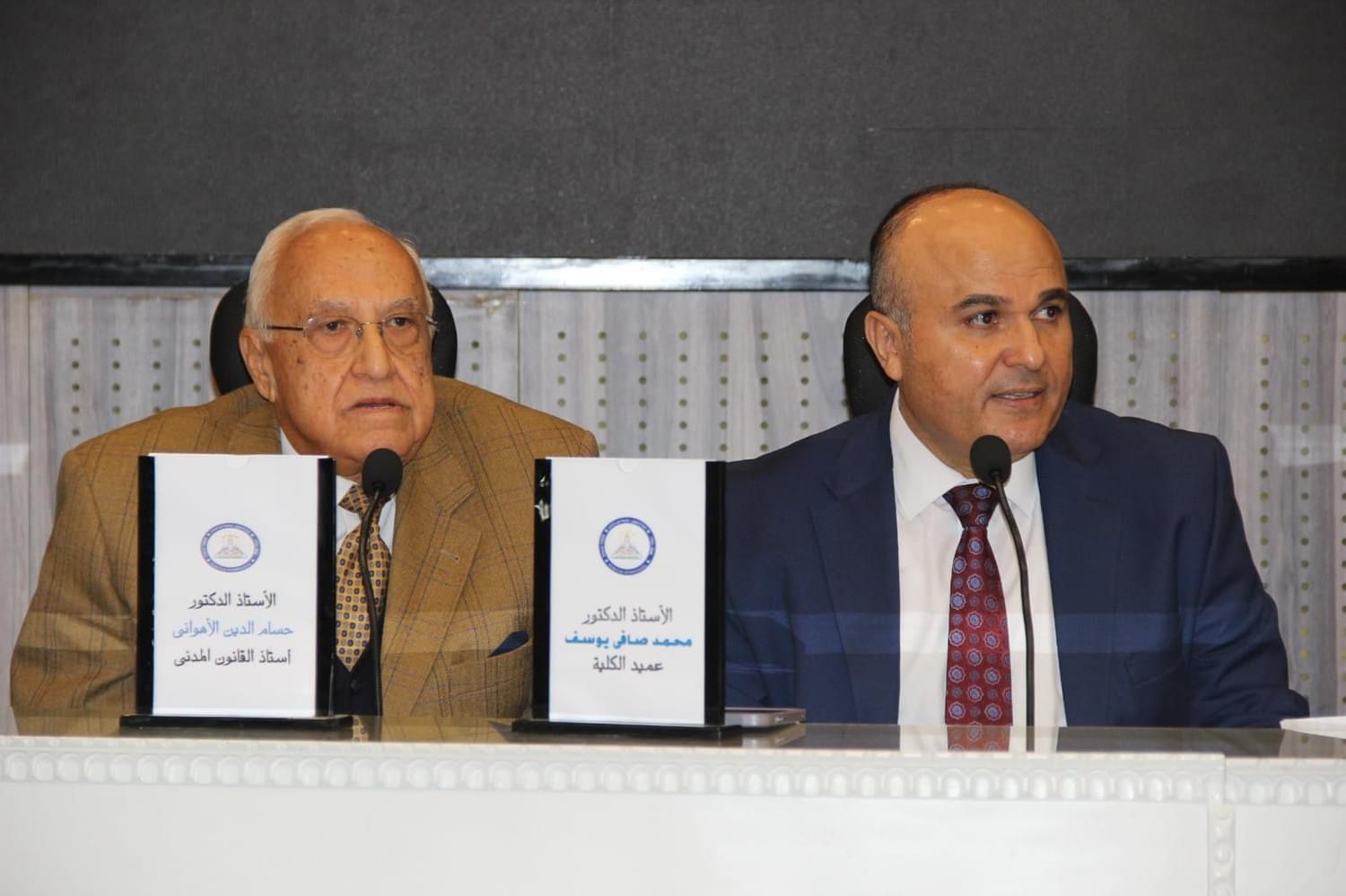The Faculty of Law discusses the topic of the hour with a symposium on "Built-in Rental Laws in Light of Judicial Developments"
Under the patronage of Prof. Mohamed Diaa Zain El-Abedeen, President of Ain Shams University, Prof. Ghada Farouk, Vice President for Community Service and Environmental Development and Acting Vice President for Graduate Studies and Research, Prof. Mohamed Safi, Dean of the Faculty of Law, and Prof. Yassin El-Shazly, Vice Dean of the Faculty of Law for Graduate Studies and Research, and within the framework of the cultural season, the Graduate Studies and Research Sector at the Faculty of Law, at Ain Shams University, held a symposium on the laws of renting built-up areas in light of judicial developments.
Prof. Mohamed Safi, Dean of the Faculty, opened the symposium by welcoming the distinguished speakers and attendees, highlighting the importance of today’s symposium as it discusses a dominant event in the legal arena, namely the law on renting built-up areas in light of judicial developments. This is a highly controversial issue, and this controversy has not been resolved yet despite its importance, which does not stop at the tenant and the landlord alone, but rather occupies the entire public opinion until the Supreme Constitutional Court’s ruling was finally issued, which revived the discussion and debate on this topic. Therefore, it has become imperative for the legislator to intervene to resolve the controversy over this topic, and Ain Shams University is contributing with its distinguished professors to the committee formed to resolve this issue.
 |
 |
|||
Prof. Yassin El-Shazly, Vice Dean of the Faculty of Law for Postgraduate Studies and Research, expressed his thanks and appreciation for the Dean of the Faculty's support for such seminars that touch society and take into account the ordinary citizen, stressing that the role of law faculties is not only academic study, but also discussing topics that touch the citizen as well.
Prof. Hossam El-Ahwany, Professor of Civil Law and former Dean of the Faculty, stressed the importance of the topic of the seminar, which has recently occupied public opinion and the developments in the laws of renting places since Law 121 of 1947 until today, as well as the reasons for the demolition of many rental units, which Prof. El-Ahwany attributed to low rents and consequently the lack of maintenance of the units.
His Excellency referred to the laws that were issued during the seventies and eighties, which negatively affected the rental market in Egypt until Law No. 4 of 1996 was issued to limit the scope of the rental laws prior to Law No. 1996 and to be in line with the general policy of the state, which stipulated that all rental contracts for premises concluded after January 1996 would be subject to the Civil Law and freedom of contracting between the owner and the tenant would be granted with regard to the rental value and the duration of the contract. This law was known in the media as the “New Rent Law.”
Prof. Ahmed Sharaf El-Din, Professor of Civil Law, former Head of the Department and Fellow of the Royal College of Arbitrators in London, addressed the implications of unconstitutionality rulings on the legislative regulation of renting premises. The link between amending the rental conditions of old housing and considerations of legal justice, economic writing and the diseases suffered by the rental market of old premises, which are economic reasons such as not writing the supply of units to meet demands and investors refraining from renting to avoid the disadvantages associated with old rents, legislative reasons and disagreement over the scope of their application, and conflicting judicial rulings that reached the top of the judicial ladder) between constitutionality and cassation such as Law No. 4 of 1996.
Prof. Sayed Eid Nayel, Professor of Civil Law and former Dean of the Faculty, referred to Law No. 4 of 1996 and how it was the beginning of the road to solving the problem of rents, which for decades had been a problem that troubled many, stressing the importance of the intervention of the Supreme Constitutional Court, which ruled the unconstitutionality of the first paragraph of Articles (1 and 2) of Law No. 136 of 1981, regarding some provisions related to renting places and regulating the relationship between landlord and tenant, in what it included regarding the stability of the annual rent for places licensed to be established for residential purposes, as of the date of the implementation of the provisions of this law.
At the end of the symposium, the floor was opened for questions and inquiries related to the topic between the speakers and the attendees.


.svg)
